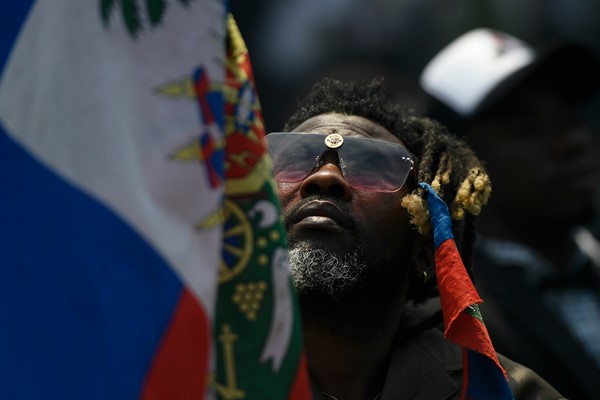Three weeks after the assassination of President Jovenel Moise, and a week after being sworn in as prime minister, Ariel Henry held his first Cabinet meeting on July 28. It did not go well. In an effort to distance himself from the unpopular Moise administration, Henry attempted to revoke a 2020 presidential decree creating a national intelligence agency, which had been widely criticized as an unaccountable secret police that could potentially spy on Moise’s political opponents.
But in response to Henry’s proposal, the Cabinet’s secretary-general, Renald Luberice, submitted a letter expressing his opposition to dismantling Moise’s agenda, in which he invoked the memory of the recently slain president and the necessity to continue his work. Ultimately, Henry backed off.
The episode illustrates just how challenging the road forward will be for Henry as he tries to organize new elections “as quickly as possible.” Beyond the divisions within his own government, Henry faces many overlapping crises. First, violent gangs, many of which had forged ties with Moise and his allies, control entire neighborhoods of the capital, Port-au-Prince, fueling a wave of violent crime that has displaced thousands of residents. On June 30, journalist Diego Charles and activist Antoinette Duclair were shot and killed by unidentified men on a motorcycle—part of a long string of assassinations of pro-democracy figures going back to 2018.

